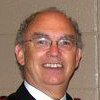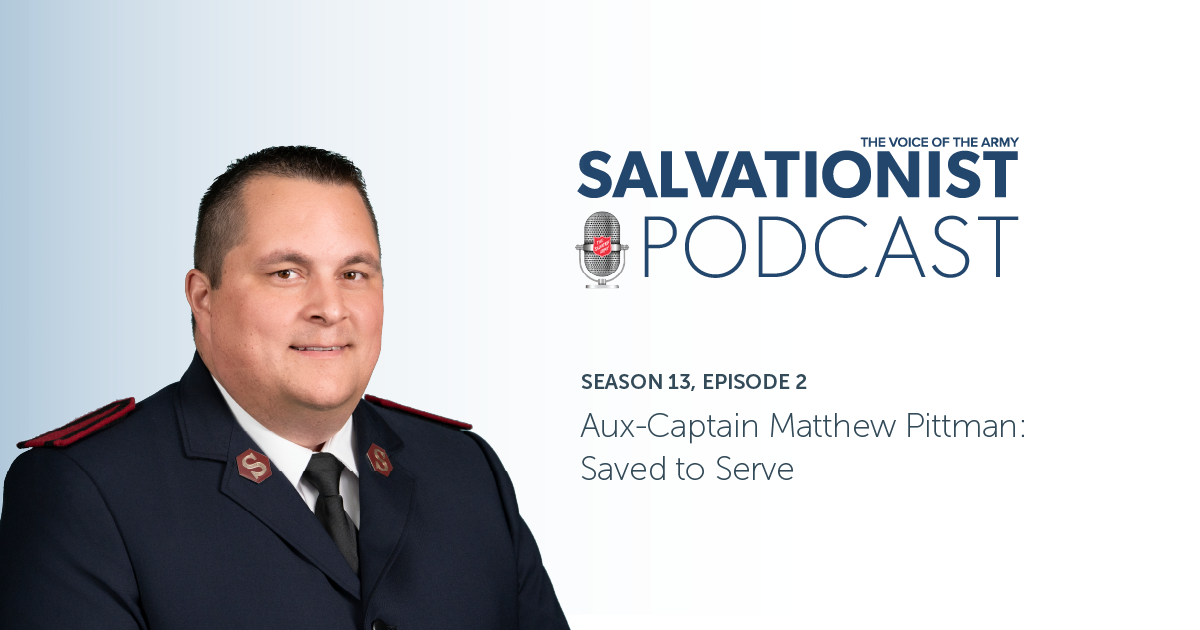 Old teachers never die, they just lose their class.” With an opening like that, some of you are probably thinking that I have finally lost mine. You may be right. If so, I take solace in the fact that I am not alone. It seems that most of the Evangelical Church, including The Salvation Army, has lost its class. Bible class, Sunday school class, soldier's class—many no longer exist or are very poorly attended.
Old teachers never die, they just lose their class.” With an opening like that, some of you are probably thinking that I have finally lost mine. You may be right. If so, I take solace in the fact that I am not alone. It seems that most of the Evangelical Church, including The Salvation Army, has lost its class. Bible class, Sunday school class, soldier's class—many no longer exist or are very poorly attended.
When we do manage to entice a few to Bible study, the content is like the inside of a cream puff—sweet and gooey but mostly air. It was one of the complaints of the Apostle Paul that the Corinthians were not ready to get into the meat of the Word. “I gave you milk, not solid food, for you were not yet ready for it. Indeed, you are still not ready” (1 Corinthians 3:2). The writer to the Hebrews expressed the same sentiment: “Though by this time you ought to be teachers, you need someone to teach you the elementary truths of God's Word all over again. You need milk, not solid food” (Hebrews 5:12).
We Salvationists are not known for our theological prowess. We minister with emotions and action. We feel compassion for the hurting in society and rush out to do something about it. As one of our mottos puts it, we serve “with heart to God and hand to man.”
That is all good, but there is more to a human being than that. God also gave us a mind. God gave us the ability to think, ponder, reflect and learn. While we are eager to feed the hungry with bread, we shouldn't forget to feed our minds with the Word. Peter put it this way: “It would not be right for us to neglect the ministry of the Word of God in order to wait on tables” (Acts 6:2). Perhaps we can expand our motto to read: “Reflecting on the Word, we serve with heart to God and hand to man.”
While we like to recount the stories of Jesus healing the sick, giving sight to the blind and raising the dead, nowhere in Scripture is Jesus ever referred to as “doctor.” Most of the time when Jesus is addressed, he is called “teacher.” His reputation was that of a teacher. In the King James Version, the word for teacher is translated “master” or “rabbi,” but the new Bible translations correctly use the word “teacher.” Each of the four Gospels addresses Jesus as teacher. Together they refer to him in this way more than 50 times. While the sacrifice of Jesus brought salvation, it can be argued that his teaching turned the world upside down. Yet in the Church we often relegate teaching to 20 minutes on a Sunday morning. This is not because the pastors and officers don't see the importance of teaching; it is because most churchgoers are not interested in learning.
When was the last time you had a serious theological discussion? When was the last time you talked at length about holiness, redemption or the Incarnation? What about church history? Most Christians jump from the Book of Acts to the present day and completely ignore the two thousand years of church history between then and now. They don't know how we got the Apostles' Creed or the Nicene Creed, if they even know they exist. They know almost nothing about how the Western Church divided into Roman Catholic and Protestant factions or the issues that brought that about. They have very little understanding of the work of the Jesuits, Moravians or Methodists. They barely recognize the names Martin Luther and John Calvin, although most Salvationists do have an appreciation for the work of William Booth and Billy Graham.
I am afraid that in most Salvation Army churches, the old teachers have indeed lost their class. There is no one interested enough to show up and learn. Yet, according to the Bible, teaching is one of the most important sacraments of the Church. A sacrament by definition is a means of grace, and what better means of grace is there than one should teach and another should learn?
The Bible says, “So Christ himself gave [to the Church] the apostles, the prophets, the evangelists, the pastors and teachers” (Ephesians 4:11). The pastor-teachers are a gift that Jesus gave to the Church. They are right up there with the apostles, prophets and evangelists. Theirs is a holy calling, the purpose of which is “to equip his people for works of service, so that the body of Christ may be built up” (Ephesians 4:12). Before we rush out to do our works of service, we first have to meet with our teachers to be equipped.
We can't do a class act of service in the world without a classroom of learning in the Church.
 Major Fred Ash is the corps officer at Burlington Community Church, Ont.
Major Fred Ash is the corps officer at Burlington Community Church, Ont.









practical theology,which I MAY ADD IS NOT ALWAYS ACQUIRED OR OBTAINED FROM
YEARS OF STUDY IN SOME INSTITUTION OF PROMINENCE..Paul's KNOWLEDGE OF THE GOSPEL came by REVELATION Gal 1; 11,12,16...he SPENT 3 YEARS IN A PRAYER CLOSET,WITH HIS BIBLE and NOT WITH A COMPUTER...Gal.1: 17....TIME SPENT IN THE PRAYER CLOSE will GIVE PLENTY TO SAY IN THE PULPIT.....
GOD HAS SOMETHING TO SAY TO THE CHURCH..IT'S IMPORTANT THAT SHE LISTEN.
GOD BLESS the CHURCH !!!!!!!
ret'd csm. walter boland